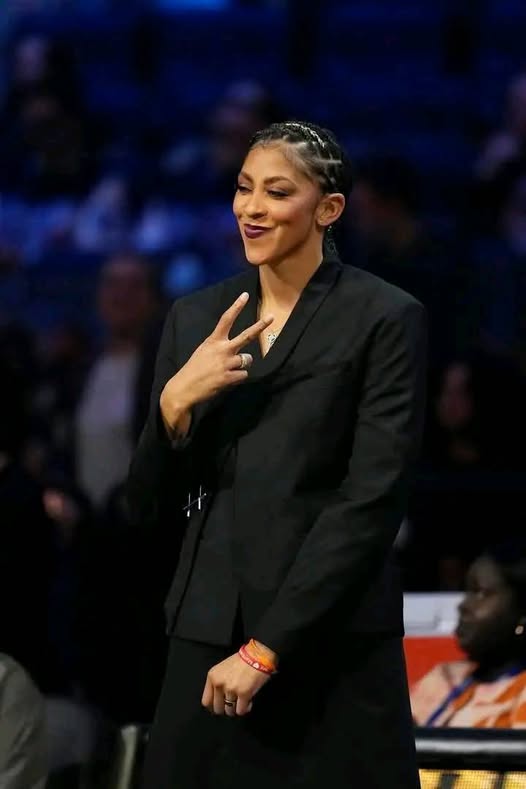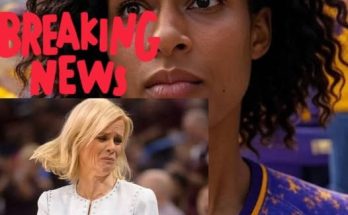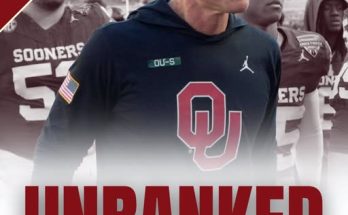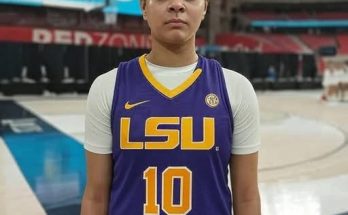In a bold and unprecedented move, Tennessee Volunteers Athletic Director Danny White has finally broken his silence on the controversial impact of Name, Image, and Likeness (NIL) buyouts that are fueling a wave of high-profile player transfers and shaking the foundations of college athletics. With the departure of star quarterback Nico Iamaleava and mounting public scrutiny of the NCAA’s vague NIL framework, White’s comments offer a candid, behind-the-scenes look at the chaos unraveling within one of the SEC’s most passionate and tradition-rich programs.
At the heart of the turmoil is a fundamental question gripping the future of college sports: Has the NIL era created a new kind of arms race, one where the highest bidder wins — regardless of school loyalty, academic progress, or competitive integrity?
The Nico Iamaleava Situation: A Flashpoint
The flashpoint for Tennessee’s NIL reckoning was the unexpected and dramatic departure of former five-star quarterback Nico Iamaleava, the face of the program’s future. Regarded as a generational talent and an elite playmaker, Iamaleava’s initial NIL deal reportedly totaled over $2 million per year — one of the most lucrative packages for a college athlete.
But that wasn’t enough.
According to multiple sources within the Tennessee athletic department, Iamaleava’s representation pushed for a substantial increase in NIL compensation, citing both performance-based incentives and growing market demands. When the school and its affiliated collectives pushed back on the renegotiation efforts, tension escalated. Iamaleava missed team practices, stopped engaging with staff, and ultimately entered the NCAA transfer portal in early April 2025.
The move stunned Tennessee fans and brought the team’s offseason into disarray. But for Danny White, it wasn’t just about losing a quarterback — it was a sobering reminder of how NIL has rewritten the rules of player-program relationships.
“We’re not dealing with the same college landscape anymore,” White said in a press conference. “What we’ve built over decades — loyalty, commitment, team culture — it’s being challenged by unchecked NIL dynamics that no one seems to want to govern with consistency.”
NIL Collectives, Player Leverage, and the Buyout Culture
At the core of White’s concern is the rise of NIL collectives — third-party entities created to fund NIL opportunities through donations, business partnerships, and fan contributions. These collectives have, in many cases, become the real financial engines behind player compensation.
While NCAA guidelines prohibit schools from directly negotiating NIL deals, the lines have become increasingly blurred. Players and their agents know which schools have robust NIL networks and which do not. In some cases, players are leaving programs not because of playing time, fit, or development — but because another collective offers a more lucrative package.
“What we’re seeing now,” White explained, “is effectively a free-agent market without contracts. Players are being encouraged to jump from program to program because another school or collective promises a bigger payout. That’s not how sustainable college sports are supposed to operate.”
He cited several recent examples, including not just Iamaleava, but transfers from other SEC powerhouses who left stable programs in favor of financial upgrades elsewhere. In some instances, players were reportedly bought out of their existing NIL deals by external agents or collectives — a practice that, while technically unregulated, raises significant ethical and competitive concerns.
The NCAA’s Role — or Lack Thereof
White didn’t hold back in criticizing the NCAA’s lack of coherent enforcement or regulatory structure for NIL.
“We’re 36 months into this NIL experiment, and we still don’t have any real framework. Just vague suggestions, outdated bylaws, and a refusal to adapt. Meanwhile, schools like ours are being investigated not for breaking rules, but for operating in a vacuum where no rules exist.”
He referenced the ongoing NCAA investigation into Tennessee’s own NIL dealings, which reportedly centers around communications between the university and Spyre Sports Group, the collective backing many of Tennessee’s top athletes. White insists the university followed every guideline currently in place and yet finds itself under threat of sanctions.
Perhaps most alarming is White’s assertion that the NCAA has been selectively leaking information to the media, attempting to “make an example” of Tennessee as a warning to other programs.
“If they can’t regulate fairly, they’ve chosen to intimidate instead,” he said. “But we won’t be scapegoated.”
The Legal Counterattack and State-Level Pushback
Backing White is Tennessee Chancellor Donde Plowman, who sent a fiery letter to NCAA President Charlie Baker earlier this year accusing the organization of procedural overreach and failing to provide meaningful NIL clarity. Plowman called the current state of NIL enforcement “incoherent” and “damaging to the student-athletes it’s supposed to protect.”
Further adding to the drama, the Tennessee Attorney General filed an antitrust lawsuit against the NCAA, arguing that the current NIL restrictions violate players’ rights to earn a living and restrict free market competition. Virginia’s Attorney General joined the case shortly thereafter.
The result? A historic legal confrontation between two powerful state governments and the NCAA — one that could redefine the limits of the organization’s regulatory authority.
A New Financial Model: The “Talent Fee”
While the legal battles play out, White is spearheading a radical new approach to NIL — and it starts with fans.
In an announcement that sent ripples through the college football world, Tennessee became the first Power Five program to introduce a “Talent Fee” tied directly to season ticket sales. Beginning in 2025, all Tennessee football tickets will include a 14.5% surcharge that goes toward NIL funding for players.
Critics argue it puts an additional financial burden on fans, but White sees it differently.
“Fans want a winning product. They want championships. That means keeping talent here in Knoxville. If this is the model we’re being forced to compete in, then let’s be transparent about how we fund it.”
According to White, the initiative has already raised millions — a sign that the Volunteer faithful are willing to adapt, even if the broader college sports world remains in flux.
Player Safety, Loyalty, and Mental Health
White also acknowledged that beyond the financial component, NIL uncertainty is impacting player well-being. Iamaleava’s departure wasn’t purely monetary; his camp also cited concerns about concussions, offensive line protection, and long-term development.
The modern college athlete is now balancing not just academics and on-field performance, but business negotiations, brand maintenance, and long-term health decisions — all by the age of 20.
“It’s a lot,” White said. “Too much, sometimes. We have to find a way to support these young people beyond just cutting checks. That’s what real leadership looks like.”
What Comes Next for Tennessee?
The Vols now face a defining moment. With Iamaleava gone, a quarterback competition is underway, and the portal remains both a threat and an opportunity. Tennessee is already in discussions with multiple Power Five transfers, but it’s clear that NIL conversations will dictate who signs — and who stays.
White’s vision is clear: compete aggressively in NIL, advocate nationally for reform, and shield Tennessee from becoming another casualty of unchecked transfer chaos.
His message to fans, lawmakers, and fellow athletic directors is just as direct:
“We’re either going to take back control of college athletics through smart reform, or we’re going to watch the system devour itself.”
Final Thoughts
Danny White’s decision to speak out may well mark a turning point in the NIL era. At a time when most athletic directors remain silent — either by choice or fear of NCAA reprisal — White is choosing to confront the problem head-on.
In doing so, he’s giving voice to a growing sentiment within college sports: NIL, while necessary and overdue, has evolved into a volatile and unregulated market. Without rules, accountability, or leadership, even the most loyal athletes may become mercenaries, and even the most storied programs may crumble under the weight of buyout culture.
Whether White’s actions result in meaningful change remains to be seen. But for now, Tennessee has drawn a line in the sand — and the rest of college football is watching.



